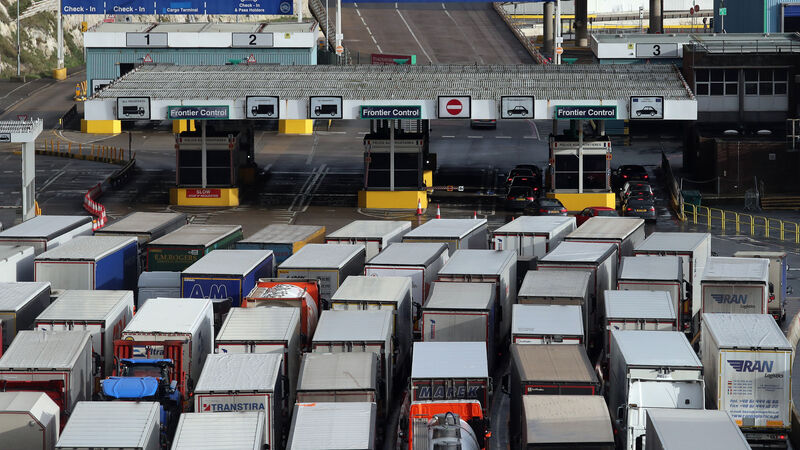It will all change for Irish exporters at 11pm on Thursday

Lorries queue to enter the port of Dover in Kent. Christmas stockpiling and Brexit uncertainty have again caused huge queues of lorries to stack up in Kent. The latest delays came as the UK marked less than two weeks until 2021 and the end of the Brexit transition period.










